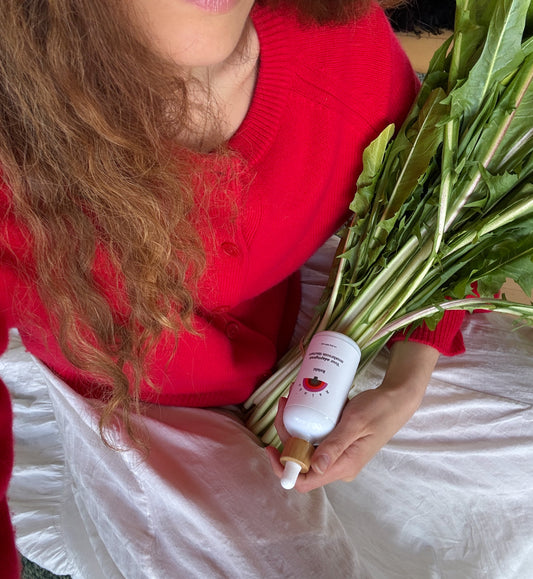How Do Medicinal Mushrooms Support Immune Function?
Medicinal Mushrooms and the immune system
Our immune system is essential. It’s our vital line of defence against pathogens and rogue cells, and we need it for survival. With the change of the seasons and the incoming cold, it is even more important to keep our immune system healthy, locked and loaded. If you want to prevent that winter cold or have caught the flu and want to speed up recovery time, medicinal mushrooms are your best friends. We aren’t saying medicinal mushrooms are a cure-all, but when we want to boost our immune system, they make the best sidekick. In order to understand how medicinal mushrooms support immunity, we must first get to know the players of the immune system.
We know that medicinal mushroom jargon can get confusing, so we have compiled a list of terms here
The human immune system is composed of an army of different cells and organs that work together to respond appropriately to pathogens like bacteria and viruses, cancerous cells, and injury. Our immune system can be generally divided into innate and adaptive immunity. Innate immunity is the system that responds quickly and non-specifically to general threats. It is primed and ready to fight invaders at all times, whereas the adaptive immune response is slower and needs to be activated. However once activated, adaptive immunity uses immunological memory to learn about the threat and enhance an even stronger attack against the specific pathogens accordingly.
The innate immune system is the first line of defence against any invading pathogen and includes the primary physical and chemical barriers of the skin and mucosa. If something from the outside does get inside, inflammation ensues. Inflammation is a tricky balancing act. It is necessary and important to fight off invaders, but too much of it can cause damage and disease to healthy tissue. Allergy and auto-immune disease are examples of an overactive immune system. In general, inflammation increases the production of immune cells and substances called cytokines, and it importantly brings leukocytes, or white blood cells, to the site of infection. The job of the white blood cells in the innate immune system is to get rid of any unwanted cells by phagocytosing (eating) them or destroying them with chemicals. While carrying out this duty, some of these white blood cells will store and bring information about the unwanted cells to the adaptive immune system. The information is carried to the adaptive-immunity white blood cells in the form of antigens. Some of these cells will then go searching throughout the body to recognize and kill the threat. The long-term defence is primed, and will be stored in the memory of the immune system for any future encounters with any cells containing the same antigens. Antibodies will be produced to help aid in the specific destruction of these unwanted cells.
Medicinal mushrooms each have their own distinct health benefits, however one thing they all have in common is their ability to modulate the human immune system. Medicinal mushrooms have been shown to enhance both innate and adaptive immunity, thereby sharpening the surveillance done by these immune cells as they roam throughout our body constantly in search of any unwanted cells. Of the many medicinally-relevant compounds, beta glucans are the main players that impact immunity. Beta glucans are carbohydrates found in the cell walls of fungi. They are acid resistant, allowing them to pass through the stomach following consumption, and reach the small intestine where they activate receptors located on intestinal immune cells. This activation leads to a wide array of immune responses targeting the white blood cells of both the innate and adaptive immune system. Studies have shown that following medicinal mushrooms intake, beta glucans stimulate the proliferation of these immune cells, while also enhancing phagocytosis ability, and stimulating the production of cytokines which further activates the immune response. However, it has also been shown that these compounds not only stimulate the proliferation of immune cells but also antagonize the inflammation that comes with immune stimulation. This effectively balances and supports the normal functioning of the immune system so that it doesn’t over or under react. Medicinal mushrooms are unique in their ability to bi-directionally modulate the immune system. On one hand they enhance the surveillance of immune cells to keep pathogens and cancer at bay, while on the other hand they decrease inflammation so as to not chronically injure the body.
In addition to direct modulation of the immune system through receptor and beta glucan interaction, the compounds in medicinal mushrooms also influence the gut microbiome. The microbiome contributes to immunomodulation in tandem with innate and adaptive immunity in the gut. The bacteria and bacterial metabolites found in the gut either enhance or repress gut immunity. The polysaccharides (including beta glucans) found in mushrooms act as prebiotics, supporting the growth of beneficial bacteria in the gut. Thus prebiotics allow for increased competency of the immune system to fight against external pathogens.
Learn more about the mycobiome (fungi that live in your gut) and how it influences your health
In many more ways than one, medicinal mushrooms influence our immune system. Add some of Rainbo’s 11:11 to your morning elixir for your daily immune boost. :)








